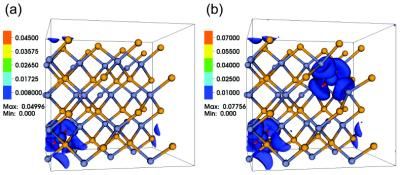The Sartorius Group Continues to Grow Substantially in the First Half
Advertisement
* The biotechnology Division grows by 19%
* The Mechatronics Division is down 5%
* Non-recurring expenses for adapting capacity levels in the Mechatronics Division have a negative impact on earnings
* Positive full-year earnings expectations remain unchanged
* Restructuring of GWT successfully completed
Goettingen, August 29, 2002 - In the first half of 2002, Sartorius Group sales revenue under the IAS rose 6.3% to EUR 232.6 million compared with EUR 218.9 million posted for the year-earlier period. Decisively propelling this growth again was the exceptionally encouraging development of business in the Biotechnology Division. In this Division, the available capacity at the new "Plant 2001" could continue to be increasingly used as scheduled due to the growing demand in the Bioprocess and Food & Beverage business areas. In addition, the fermenter business of our subsidiary BBI showed a highly positive development again as in the previous quarters. In this way, the Biotechnology Division's sales revenues in total could be increased by 19.0% compared to the figure posted for the first half a year earlier, whereas the Mechatronics Division had to accept a decline in sales of 5.2% because of the soft market cycle. On account of the persistent global recession in the markets of our Mechatronics Division, we responded by taking comprehensive measures to adapt our production capacity and make it even more flexible, as well as by considerably restructuring our Industrial Mechatronics area. As a result of these measures, significant cost reductions can be expected as of the 3rd quarter.
The corresponding costs for this package of measures have already been completely included in our first-half financial statements. In addition, the following had a negative impact on earnings as was also the case during the first quarter: the setup of the international sales organization at our subsidiary Vivascience, which proceeded independently of the postponement of its IPO, and the effects of the soft economic situation on our Mechatronics Division. First-half earnings before interest and taxes, EBIT, which were adjusted for the expenses of the organizational buildup at Vivascience and for the adaptive and restructuring measures taken in the Mechatronics Division, were EUR 3.7 million. Therefore, the first-half level of the previous year of EUR 8.6 million could not be attained due to the economic effects on our operations and to the increased depreciation in connection with investments in our "Plant 2001." Adjusted accordingly, first-half earnings before interest, taxes, depreciation and amortization, EBITDA - which we consider the key figure for operating profitability under growth and liquidity aspects - were EUR 16.3 million, just under EUR 18.8 million reported for the year-earlier period. Because of the non-recurring expenses mentioned, the non-adjusted EBIT was EUR -3.5 million, down from EUR 7.3 million posted for the year-earlier period. Cash flows from operating activities rose substantially to EUR 17.4 million from EUR 4.4 million reported for the year-earlier period.
Against the background of the measured initiated, the Executive Board continues to adhere to its positive full-year earnings expectations and to aim at achieving an increase in earnings relative to the previous year. The considerably positive earnings expectations for the second half are based on the following, among others: the continuous increase in the scheduled production volume at our "Plant 2001"; the restructuring and cost-cutting measures initiated in the Mechatronics Division; the reduction in the work hours of employees working in the Mechatronics Division at Sartorius AG; the impact of further cost reductions throughout the Sartorius Group; structural seasonal trends in the demand of some business areas; and the assumption that the economic situation will pick up slightly. Although the Executive Board believes that full-year growth in sales revenue is likely to be higher than that of the first half, this Group-wide growth will, however, probably not reach the double-digit percentage range within the remaining fiscal year, as originally aspired.
Concerning the non-recurring expenses generated by the adaptive and restructuring measures, Sartorius' Executive Board Chairman and Group CEO Prof.Utz Claassen said, "This hurt us in the second quarter, but will really help in the long run, because the economic requirement for restructuring also means an opportunity for sustainably increasing the basis of our earnings power." Along these lines, the final restructuring measures, which were resolved at the end of May in the Industrial Mechatronics area at our Hamburg-based subsidiary GWT, formerly Philips Wägetechnik, resulted in a positive EBIT figure already in July. Therefore, the Executive Board considers that GWT's restructuring has been successfully completed.



























































